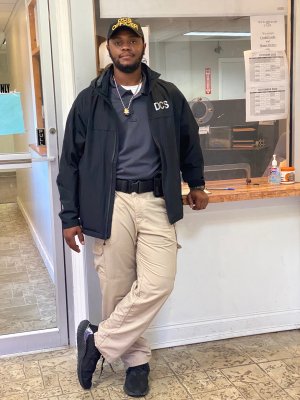Clinton Stroble ’19: Connecting justice with relationship building
Clinton Stroble ’19 is a community supervision officer with the Georgia Department of Community Supervision (DCS), where he connects with people on probation and parole.

“My greatest takeaways from the peace, justice and conflict studies program at Goshen College all revolve around the idea that ‘Nobody is the worst thing they have ever done.’ At Goshen, we thought endlessly about ways to better serve the world around us. We thought about how to build relationships with individuals who do not think or act like us. We learned about the importance of hearing others and them feeling heard.
“The Georgia DCS is an extension of the principles I learned at Goshen College. The world says these people are no good. The world decides that their story does not matter. However, at the DCS we give these individuals the space to be heard. We give them the resources to achieve success outside of staying out of trouble. We let them know that we are on their side. The Georgia DCS is a nationwide leader in Enhanced Supervision Protocols (ESP) because we live restorative justice every day.
“Our primary goal is to reduce recidivism and we play a large role in helping individuals achieve their personal goals. We acknowledge that offenders will not be on supervision the rest of their lives and strive to find ways to empower offenders through their personal goals so that they can be successful beyond supervision. Building relationships is the way we do it.
“A highlight of my work is the opportunity to build meaningful relationships with people. Although they have committed felonies, these people have lives and goals, and we want to be a catalyst to helping them reach them. It has been such a blessing to be part of a law enforcement agency that truly believes in these principles and is intentional on practicing them.
“The greatest challenge has been applying these principles. Although I understand their value, building relationships with people who do not want to build relationships with you is extremely difficult. Every day I learn new ways to communicate and about my own communication tendencies. Being self-reflective helps me to learn; however sometimes you only have one opportunity to build a relationship that is based on truth and justice. If I mispeak even slightly in our initial interactions, it will be an uphill battle to build that relationship.
“This is restorative justice. As officers, we were taught a conversation structure that is built around the offenders and their stories and goals. We give them the space to claim their goals and we point them to the resources to help achieve them.”




